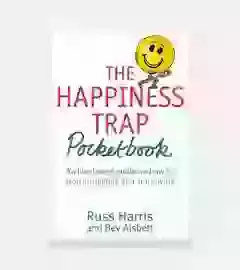What do we mean by Worry?
Excessive worrying or Generalised Anxiety Disorder (GAD) as it is known, affects up to 5 per cent of the general population, causes much distress and can be highly debilitating. Weeks, months or even years may pass with little relief.
Worry saps our energy and leaves us feeling tense. It interferes with our lives: we have to plan for it, we give in to it, we accommodate it and it pushes us to avoid situations where we know it will get worse. For some it stops career plans, it interferes with relationships, and life goals are suspended as a consequence. Often we are so used to carrying the burden of worry that we forget how much it is impacting on our lives - it has become a damaging habit that we no longer even notice.
Worry is often described as a chain of negative thoughts, images and doubts about things that might happen in the future. In essence, worriers tend to be concerned about what's ‘around the corner' rather than what's here right now. So, for the most part, worry is not about things where the outcome is certain, it's about things where the outcome is uncertain. Worrying about one thing often tends to lead quickly and easily into worrying about something quite different. As a result, worriers can get caught up in a whirlwind of thoughts about bad things that might happen. These are often highly unlikely or are about very distant possibilities, but when caught up in a chain or spiral of worry, they seem very real.
Once people are caught in this whirlwind, they often feel as if they can't stop worrying. The worry seems uncontrollable, and attempts to stop or divert it may not appear effective or may even seem to make it worse. People often report feeling tense, nervous or panicky, or they describe feeling overwhelmed, helpless or paralysed with uncertainty. Worriers tend to have an overriding sense they cannot cope with the problems and situations the world throws at them. They may feel inferior, with low confidence and self-esteem. During the whirlwind, the predominant feeling is anxiety, but once the storm eases off, worriers often feel demoralised and exhausted.
People caught up in this whirlwind often show various other signs of anxiety. These signs or symptoms appear as a product of excessive worry. Those experienced most often are muscle tension, restlessness (being unable to relax), tiredness, irritability, difficulty in getting to sleep or staying asleep and difficulty in concentrating or focusing ones attention. As well as these main symptoms, other types of experiences can also develop, such as palpitations, butterflies, a knot in the stomach, digestive upset or headaches. Once these intense physical sensations appear they can trigger more worry and set up a vicious cycle by reminding the worrier about the very things they were trying to avoid worrying about.
We tend to worry to ourselves, as a private experience - even close friends may be unaware of our worrying. Often we worry late at night or in the small hours of the morning, or at other times when we are ‘alone with our thoughts'. This very personal experience has a profound experience on how we relate to others. For instance, worry may motivate us to become over-protective: we may continually check on our loved ones, who may interpret this as intrusive or nagging. We may avoid situations or people that we know will set off worry. Sometimes worry drives us to seek reassurance from those around us, ‘checking out' our fears with others in subtle or obvious ways. If we share our worries, it may only be because they are getting too much for us, and even then we may worry about burdening or bothering others. More usually, we worry about what people will think of us, concerned that others might see us as odd, weird, stupid or even crazy.




















